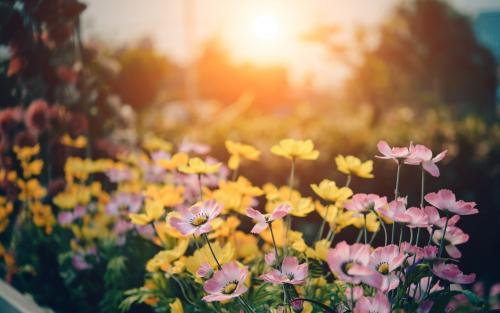Useful Tips to Know Before Starting Your Own Family Garden

The image source is Pexels.
Do you want to create a vegetable garden? How difficult could it possibly be? Isn't it as simple as putting a few seeds in the ground and watching them grow? If only it were that easy. Starting a family garden is an excellent method to provide nutritious, fresh, and organic food to your family. Before you start digging, consider these garden tips.
Choose a Suitable Place
A sunny location is perfect since most veggies require at least 6 hours of direct sunlight per day. Some crops, such as lettuce and spinach, as well as other greens, will thrive in your slightly sunny places, but daylight plants, such as tomatoes and peppers require the most light.
A Productive Garden Depends On the Quality of the Soil
The soil provides nutrition, stability, and drainage to plants. To develop your ideal garden, start with a well-drained, sandy loam and as much organic matter as possible. You can use sulfur prills to supply plants with nutrients. They are one of the most essential fertilizers for your plants.
Water Must be Easily Accessible
Nothing exhausts a new gardener more than lugging water to thirsty plants during high temperatures. Consider purchasing a hose with a sprayer attachment or, better yet, a drip irrigation system.
Seedlings or Seeds?
Lettuce, beans, carrots, beets, chard, spinach, peas, cucumbers, and squash can all be planted where they will grow. Plants that require a considerable maturation period before producing edible fruits benefit from an early start. Tomatoes, peppers, eggplant, and melons can be purchased as transplants or germinated indoors 6 to 8 weeks before planting outside.
Select Plant Types that Will Be Ready To Harvest Throughout Your Growing Season
For planting dates based on the first and last cold dates, as well as the length of the growing season in your area, consult the Almanac Planting Calendar.
Use Raised Garden Beds or Containers to Maximize Space
Consider creating raised beds that you can fill with suitable soil with highly rocky soil or thick clay. Another approach is to grow vegetables in containers. Try to grow bags if you want a quick garden. Alternatively, spread vast bags of potting soil in your sunniest position, poke drainage holes in the bottom, cut slits in the top, and place your transplants in them. Every spring, a friend of mine lined her driveway with bags since that was the only sunny space she had. Her tomato plants were stunning, and she also developed delicious peppers.
Begin Small and Work Your Way Up
While you may want to immediately transform your entire garden into an edible paradise, it is easy to feel overwhelmed with a large garden project when you are just starting. It is much better to learn about different gardening techniques and the growing requirements of only a few other plants in the long term.
Remember the Pollinators
Many of us are now aware that our pollinator populations are in trouble, owing in part to the extensive use of industrial agriculture pesticides and habitat destruction. Many of our favorite garden fruits and vegetables, such as tomatoes, cucumbers, and zucchini, rely on pollinators such as bees to produce fruit. You can grow plants that attract and offer nectar for pollinators such as bees and butterflies in our yards and gardens as gardeners. This will not only benefit pollinator numbers, but it will also draw these "good guys" to your yard, pollinating your plants.
Maintaining Your Garden Regularly
As your garden grows, keep up with garden chores to help it reach its full potential. Water the plants before they wilt. Weeds should be removed before they flower. Get rid of any dead, dying, or unhealthy vegetation. Picking damaging insects off the plant and throwing them into a pail of sudsy water (such as tomato hornworms), hosing them off, or spraying them with insecticidal detergent purchased at a garden center are all excellent methods of eliminating them.
Conclusion
With relatively minimal routine maintenance, a well-planned and prepared garden will bring many years of production. Think about it and start today in your home. A garden is also an area where your family can interact and create memorable memories while learning more about our earth's natural resources. Don't let a lack of gardening expertise get in the way of your success.
Post Your Ad Here
Comments